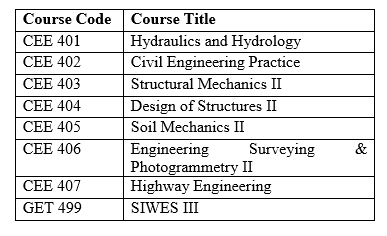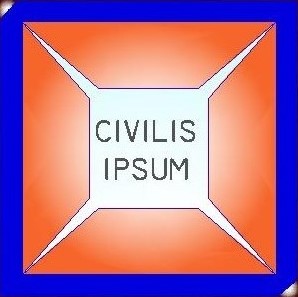Discrimination between Degree certificates obtained from Universities and Diplomas obtained from Polytechnics has been a thickly contested issue in Nigeria. In most cases, University graduates are preferred over Polytechnic graduates and most times paid higher than them. This discrepancy has made Polytechnics be kept in disagreed and often attended by those who have failed several times to secure admission to the University. Due to this reason, you would hardly find multi-national companies’ scholarship adverts in Polytechnics because they probably have come to believe that less bright students school in Polytechnics and these are not whom they want but it is not always so. The question now lies in what the University graduate has that the Polytechnic graduate does not have.
In engineering, for instance, both graduates spend the same number of years (5 years) in their studies. While a Polytechnic student would spend one (1) year and four (4) months of those five years in field training (Industrial attachment), University students spend six (6) months in the same training. Looking at this one may conclude that the general belief that University is more ‘theoretical’ and Polytechnic more ‘practical’ in Nigeria may be true. The truth in this is relative. If a Polytechnic undergraduate could not secure a place of training within the 1 year and 4 months available to him and the University counterpart got well-trained within the 6 months available to him, he would definitely have more practical experience than his Polytechnic counterpart and we are quite aware how difficult it is in Nigeria for undergraduates to secure of a place of training. The fault lies in nothing but a lack of industries to absorb undergraduates and graduates.
Also Visit: ExamSnap CompTIA Security+
By definition, University means a high-level educational institution in which students study for degrees and academic research is done. Polytechnic on the other hand was identified as a technical education of engineering or a diploma in engineering courses that is focused on practical and skill-oriented training. With this definition, one can see that each institution has a defined purpose and therefore, a distinct study strategy. Research usually involves a lot of study and laboratory work while practical skill training requires a lot of field work. Graduates from either institution have distinct roles to play in a nation’s economic and technological development and these should be properly harnessed.
To underscore the research-oriented nature of the University education system, the promotion of any academic staff in a University largely depends on one’s research output and you would believe me that research is the life-wire of the society. All new inventions and discoveries are products of research. To be able to lecture at a university, one needs to obtain a Master’s degree. To aspire for a professorship, one must also obtain a Doctorate degree as he continues to fine-tune his research skills. This is not so in Polytechnic where the promotion of staff largely depends on the number of years in service.
Let’s also look at the course structure of both systems for a civil engineering course as provided by National Universities Commission (NUC) for Universities and National Board for Technical Education (NBTE) for Polytechnics.
Also Visit: ExamSnap CompTIA Security+
University
100 Level Courses

200 Level Courses

300 Level Courses

400 Level Courses (Second semester is usually 6 months SIWES programme)

500 Level Courses

Also Visit: ExamSnap CompTIA Security+
Polytechnic
100 Level (National Diploma (ND) I Courses)

200 Level (ND II Courses)

ONE YEAR PRACTICAL EXPERIENCE PROGRAMME
300 Level (Higher National Diploma (HND) I Courses)

400 Level (HND II Courses)

Also Visit: ExamSnap CompTIA Security+
Looking through these two curricula one can see that Polytechnic courses are more practical oriented than University courses. All University engineering undergraduates irrespective of discipline offer almost the same courses in the first and second years. The idea of this is to provide a wider view of all engineering principles to the students. This is not so in the Polytechnic where the student starts from the first year to study his core courses. Ideally as noted elsewhere, a University education prepares one to further his studies but a great percentage ventures into the workforce. Graduates of polytechnic can also further their education by doing a postgraduate diploma (PGD) programme in a university before going for a Master’s degree.
Some organizations play what I consider ‘bias’ by paying university graduates higher than polytechnic even when Polytechnic graduates may have more practical skills. One professor once noted that the origin of every practical activity is theory. Ideally, something must exist and be certified on paper before it is put into practice. That’s why the knowledge of the theoretical principles of every practical work is very important and theories are products of research as noted elsewhere. If all research continues to exist on paper, the world may have remained stagnant. Those studying in University should study hard to learn all necessary basic principles and associated practices as well. Those studying in Polytechnics should study hard to learn all necessary practical works and associated principles. Both University and Polytechnic graduates are very important in a polity and their duties should be complementary. Since both students spent the same number of years in the institution and always put in the same effort, one in learning practical skills and the other in mastering theoretical principles, both should be remunerated equally if their experience and skills match, irrespective of the certificate. However, those graduates of either University or Polytechnic who are sound in both theory and practice should have the upper hand. Wherever you have found yourself, self-develop yourself, fine-tune your skills and you would definitely stand better in society as an employer and not an employee.
Thanks for visiting MYCIVILLINKS today.
Also Visit: ExamSnap CompTIA Security+

